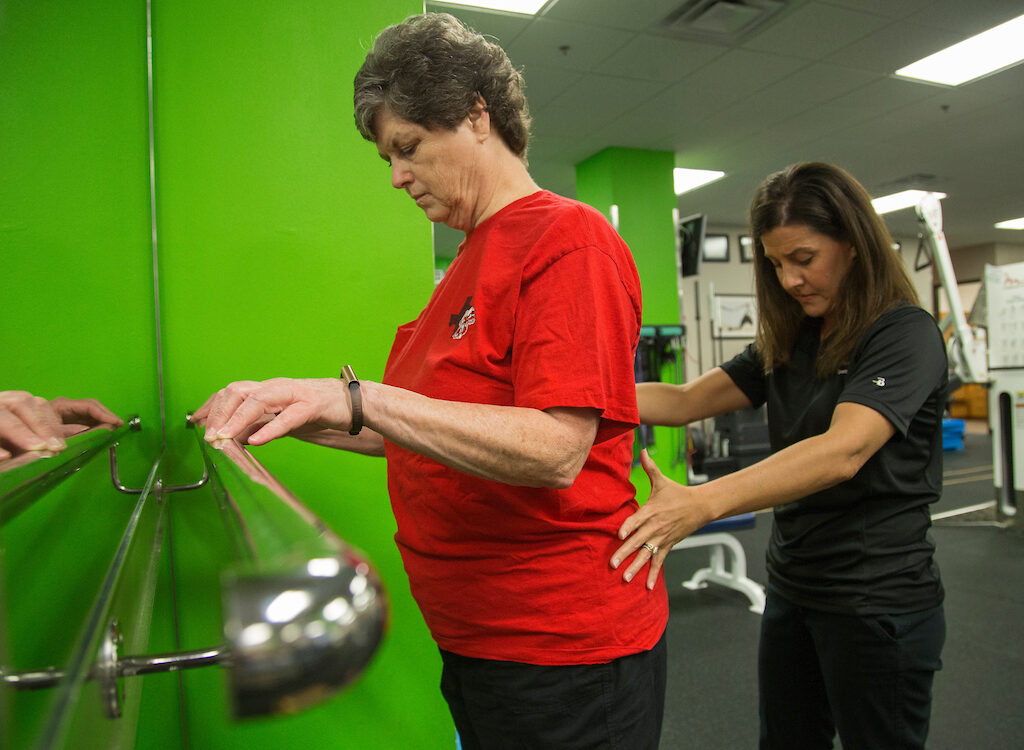A Matter of Balance
- Type
- Program

Overview
Contact
Research indicates up to half of community-dwelling older adults experience fear of falling and that many respond to this concern by curtailing activity. A majority of falls occur during routine activities and are usually caused by a variety of issues. In fact, a large portion of falls are preventable. Being inactive may result in loss of muscle strength and balance and may compromise social interaction, increasing risk for isolation, depression, and anxiety.
A Matter of Balance is a nationally recognized, evidence-based fall risk reduction program that emphasizes practical strategies to reduce fear of falling and increase activity levels. Participants learn to view falls and fear of falling as controllable, set realistic goals to increase activity, change their environment to reduce fall risk factors, and exercise to increase strength and balance.
More choices in Aging & Caregiving
- Course
Promoting creativity in an early childhood setting is critical for the development of children’s brains. Environments, daily interactions, and experiences are all opportunities to promote creativity in young learners. Creativity can be expressed through the visual arts, music and movement, and dramatic arts.
After completing this 3-hour course, the learner will be able to describe the elements of creativity, explain how environments can encourage creativity, examine how the arts can support development across all domains in early childhood, and discuss the different categories of creative arts with connections to the four developmental domains. - Course
To grow and excel as an early childhood professional, you must reflect on your teaching practices and child observation to make changes and adjustments to your teaching approach. Intentional early childhood professionals engage in reflective practices and create a professional development plan that builds upon their strengths and enhances their teaching.
After completing this 4-hour course, the learner will be able to describe what an intentional early childhood professional is, explain what reflective practices are and how to implement this information effectively to improve their teaching, explain why being intentional and reflective promotes the development and learning in the children they are teaching, and create a professional development plan based upon their strengthens. - Course
Intentionality is one of the hallmarks of a high-quality learning program. This involves not only using a curriculum that aligns with child development and guidelines, but also ensuring instruction is targeted to the needs of each child in your classroom.
This 4-hour course for early learning educators discusses how to use the cycle of curriculum learning to plan whole group, small group, and individual level to appropriately meet the needs of all learners. - Course
Knowing what children can do and what they know is powerful information that can guide early learning teachers to create appropriate learning experiences for their children. The purposes and types of assessments are examined.
This 4-hour course for early learning educators is designed to review the purposes of assessment, how to evaluate and interpret the results, and create a plan to share results with families. - Course
A major component of completing the process for the Child Development Associate (CDA) Credential is building your CDA Professional Portfolio. This portfolio contains all the documentation needed to meet the requirements of the CDA credential and will be part of your CDA Verification visit. This resource binder should be built to be used by you as you work with the children and families you serve.
In this four-hour course, the learner will be able to identify the essential components that must be included in the CDA Professional Portfolio, including the family questionnaires, the Reflective Dialogue Worksheet, the resource collection items, and the accompanying competency statement for each of the six areas required and the Professional Philosophy Statement. This binder will be part of the resources examined by the CDA Professional Development Specialist and used as a reflection tool during the CDA Verification Visit. - Course
Children are born curious about the world in which they live. In this course, we discuss how to use a variety of dresearch-based learning materials to promote and enhance their natural curiosity, reasoning, and problem-solving in the areas of social studies and nature.
After completing this 2-hour course, the learner will be able to describe how social studies and using nature support children’s cognitive development. Social studies experiences should reflect the range of the children’s cultural groups. The learner will be able to give activity examples from these two areas.
